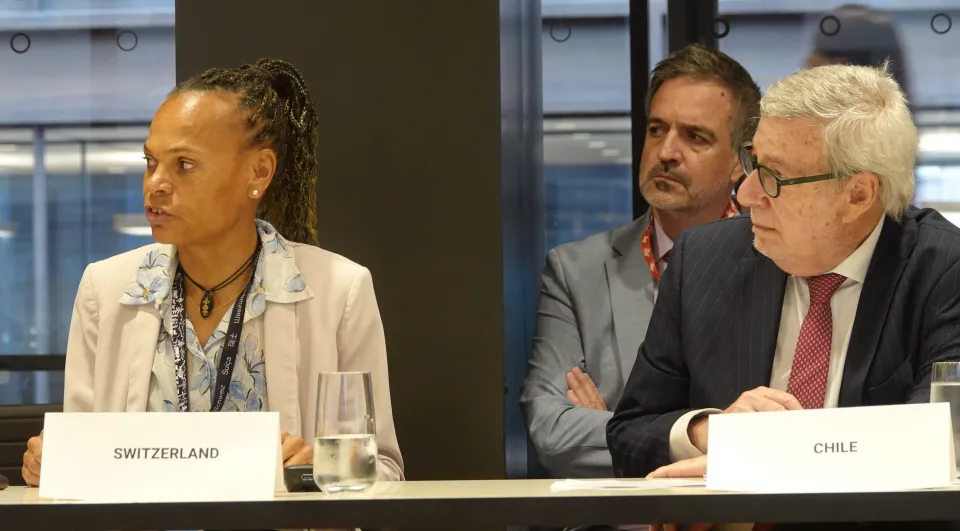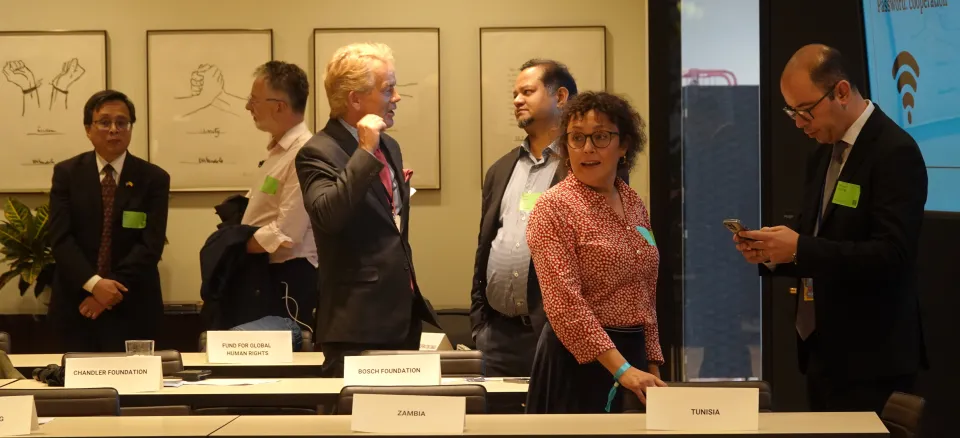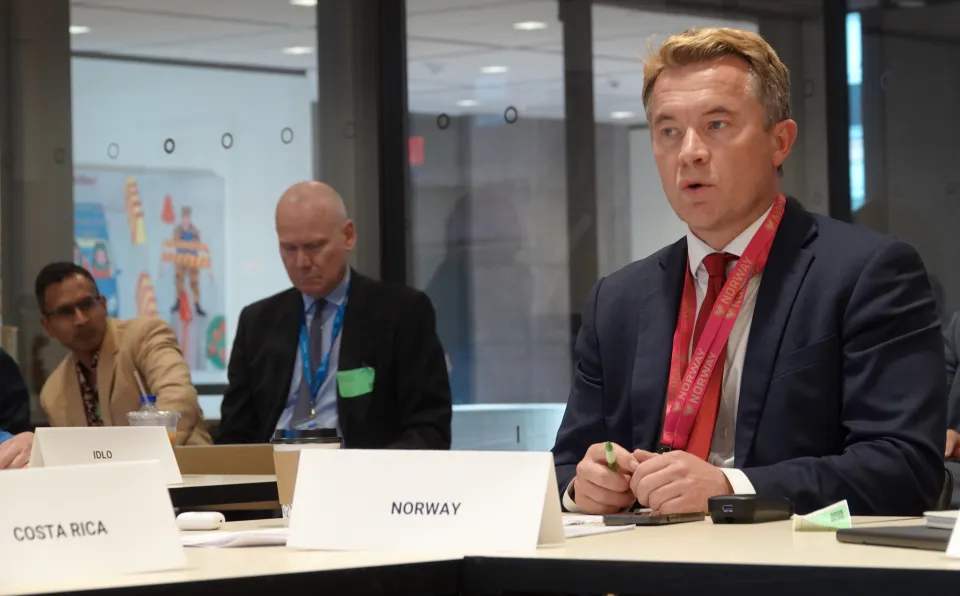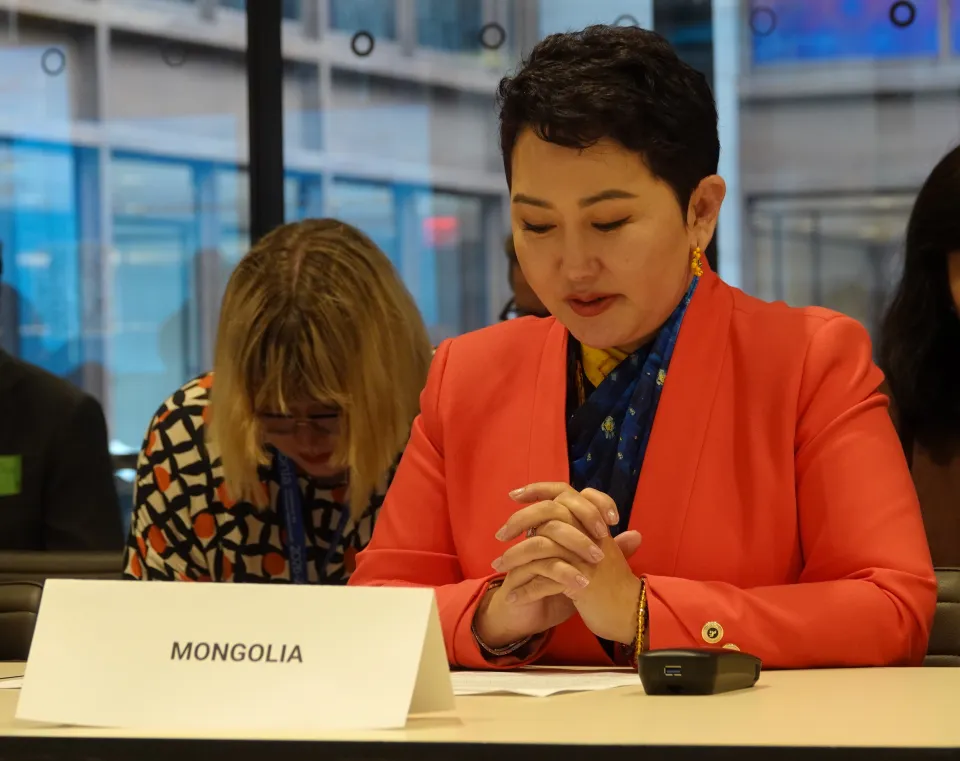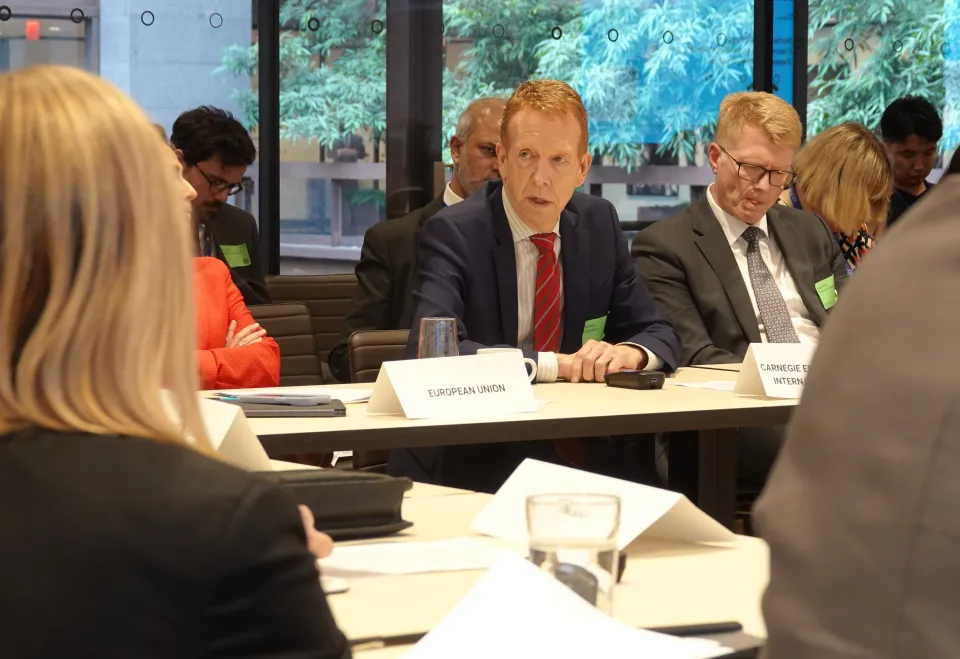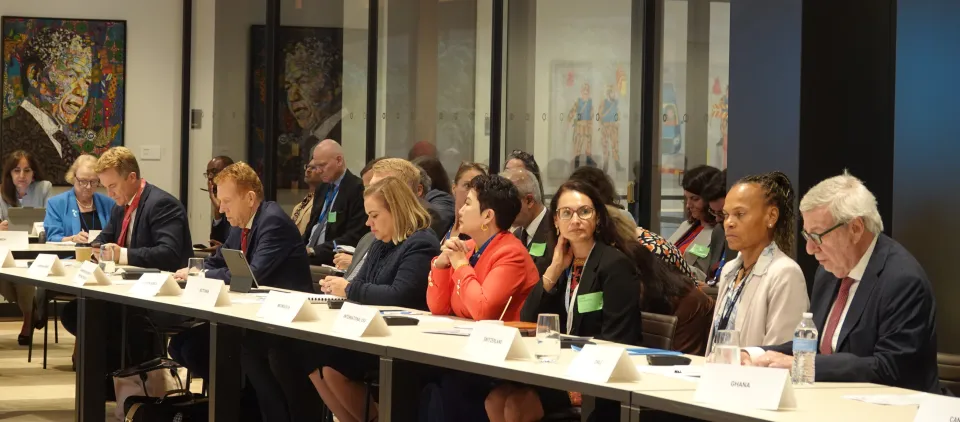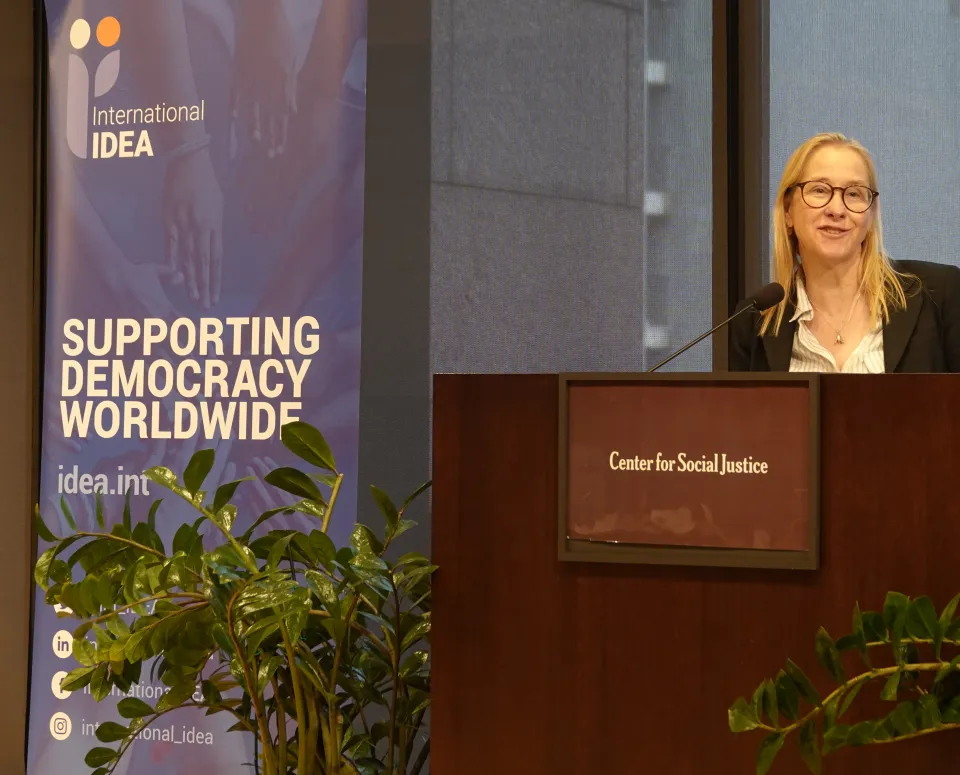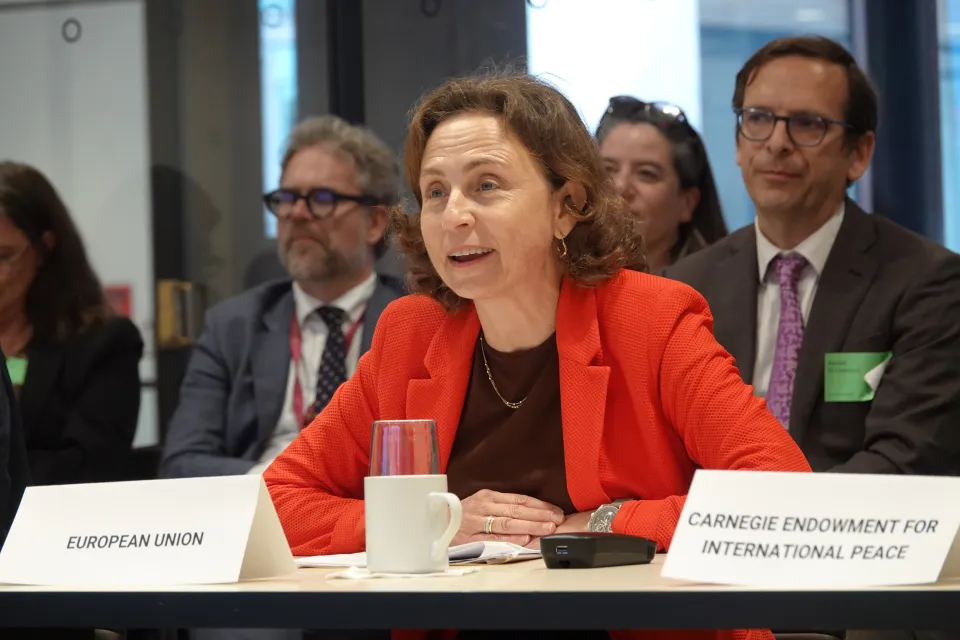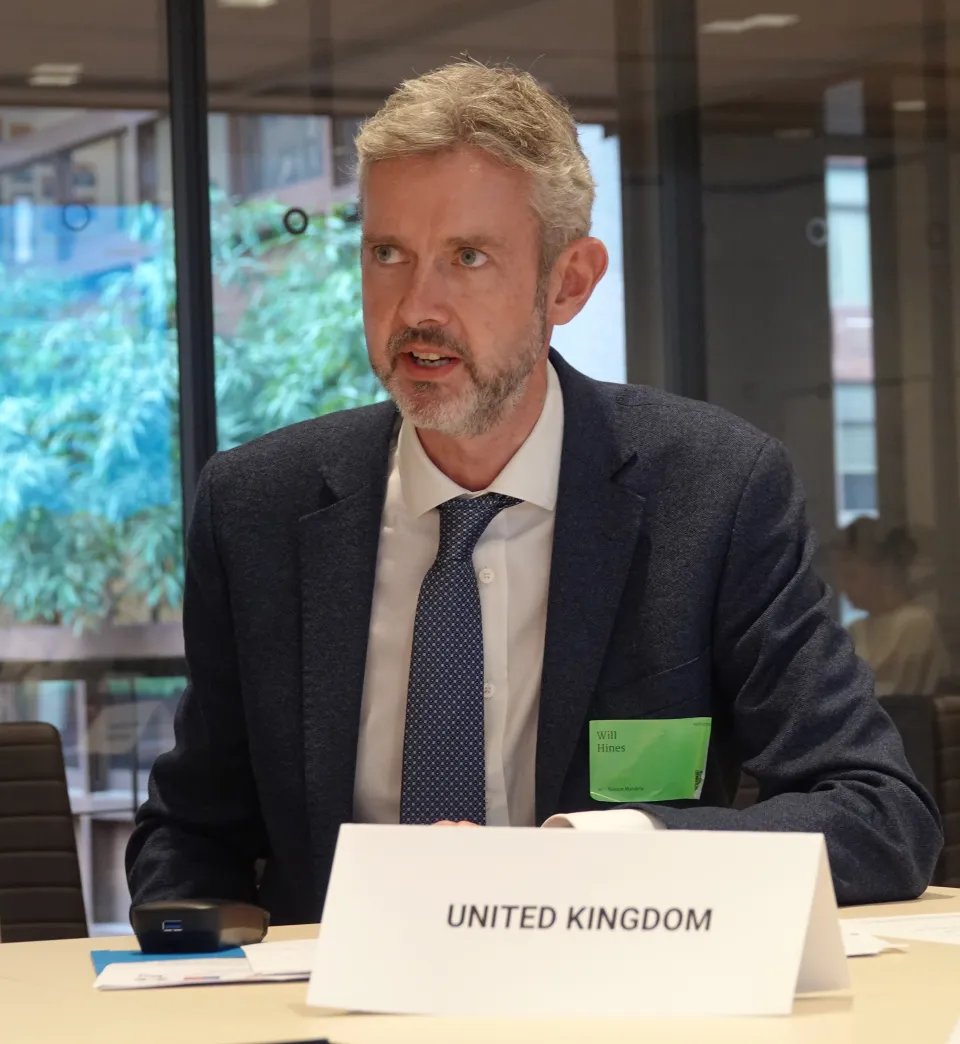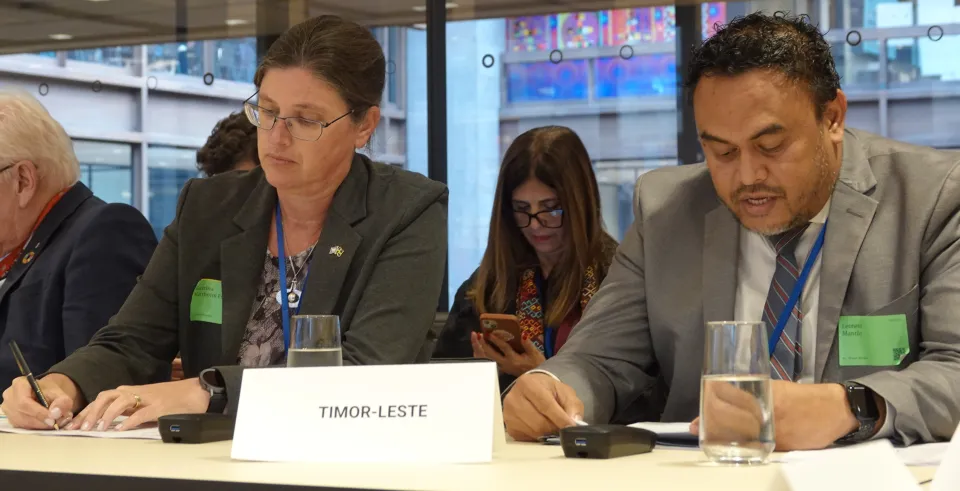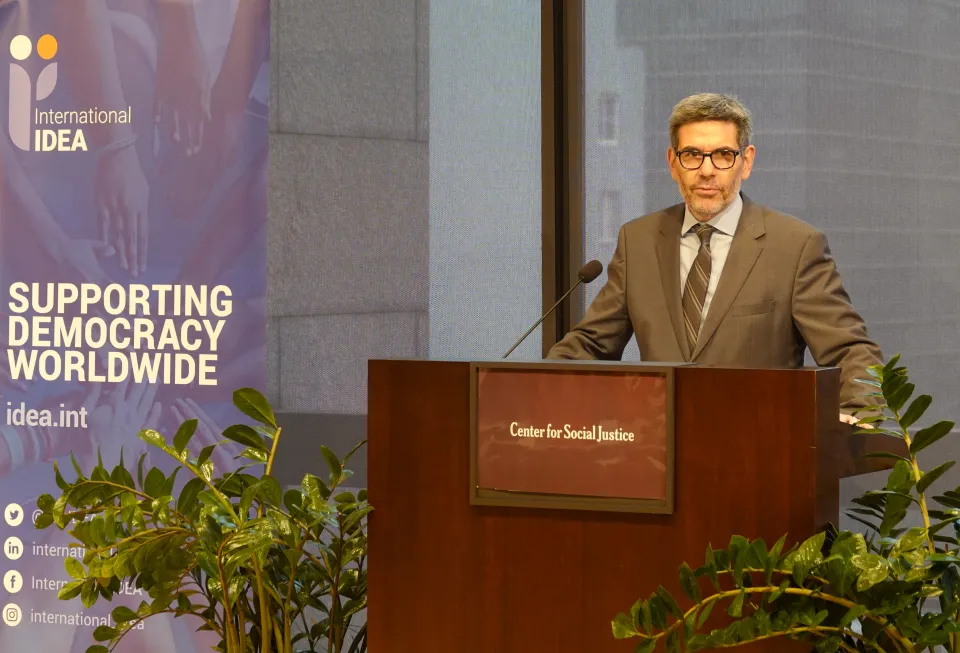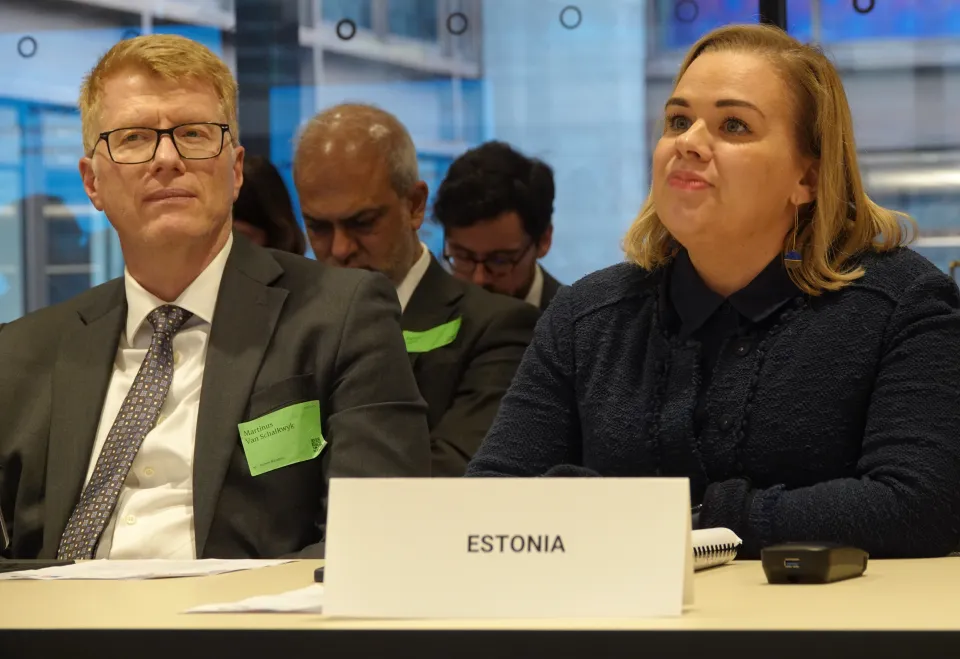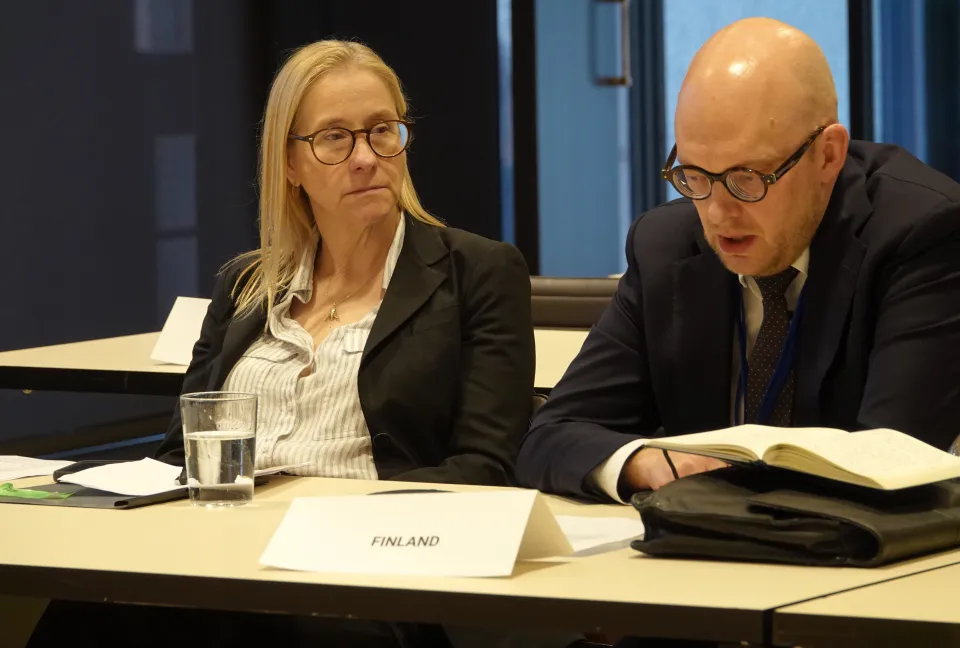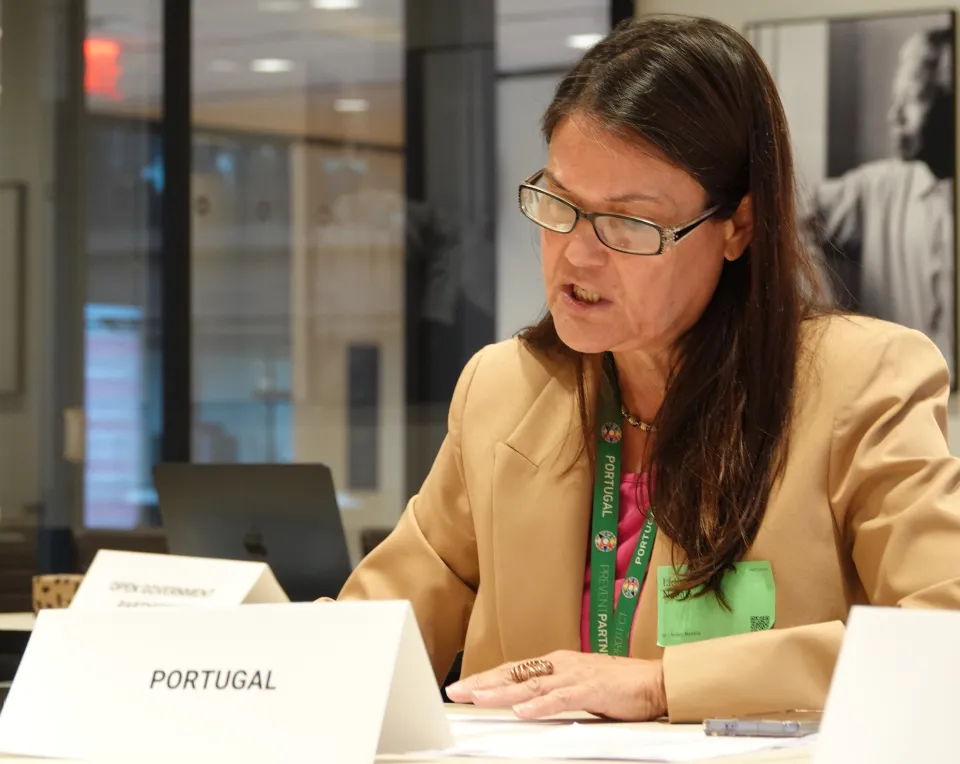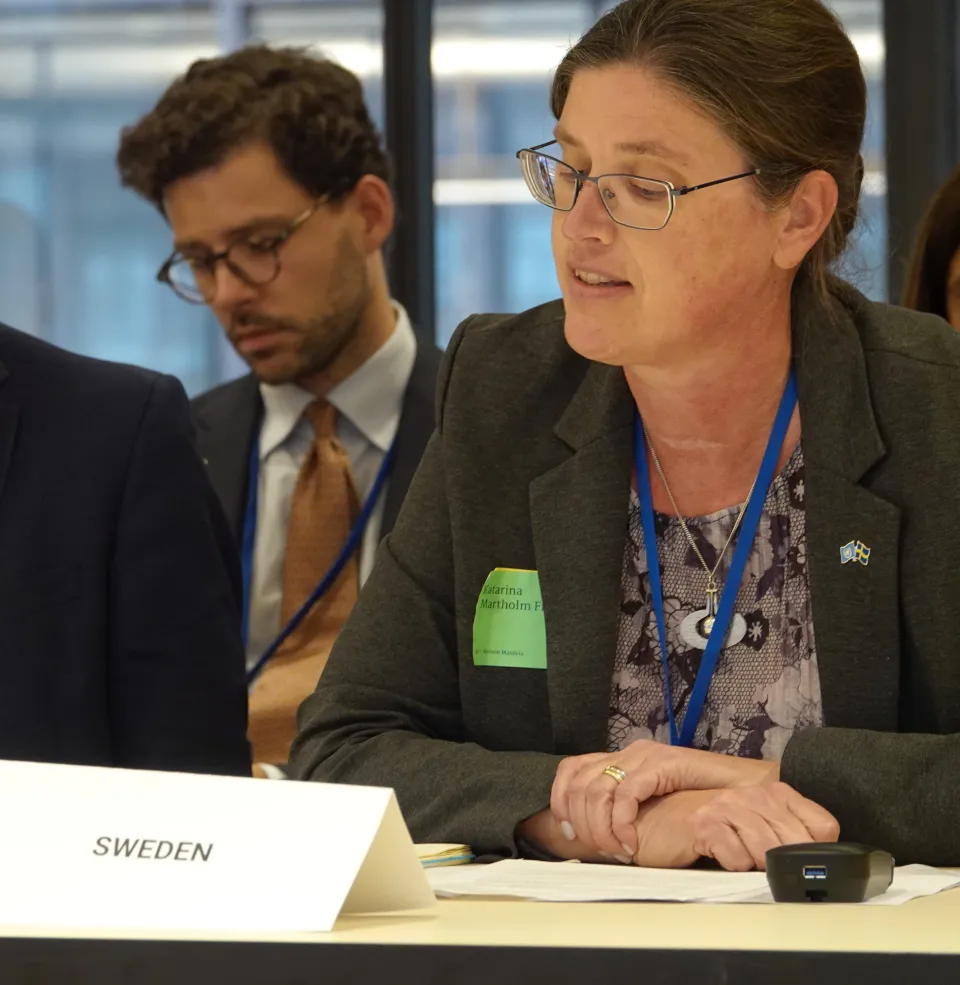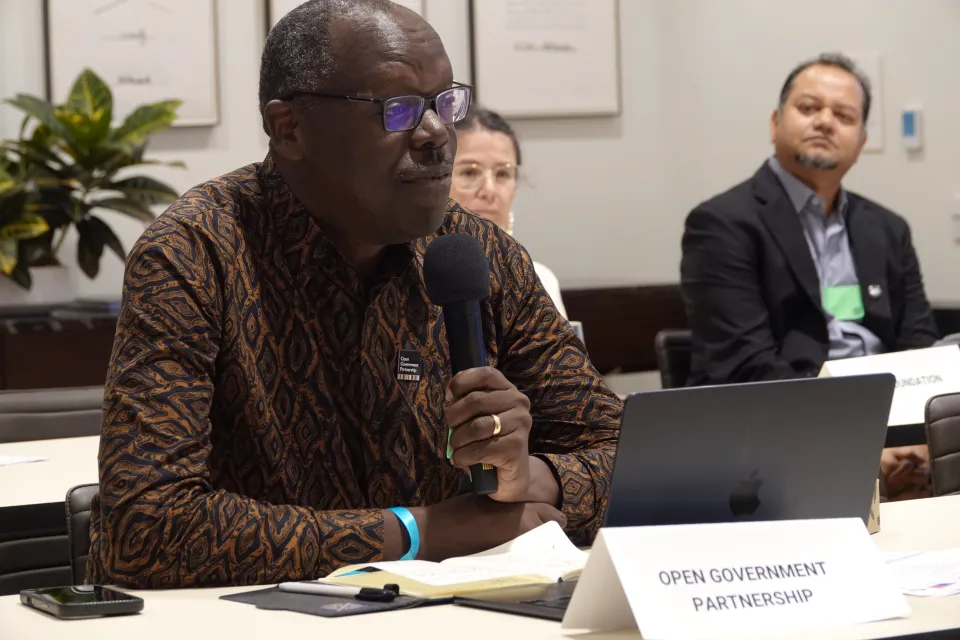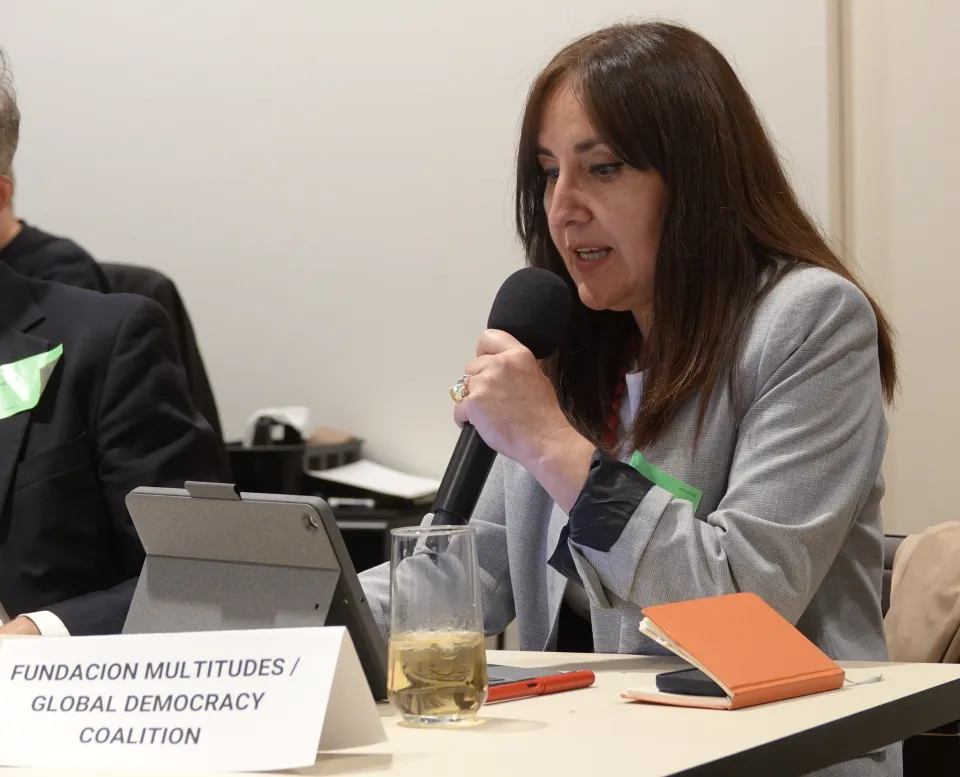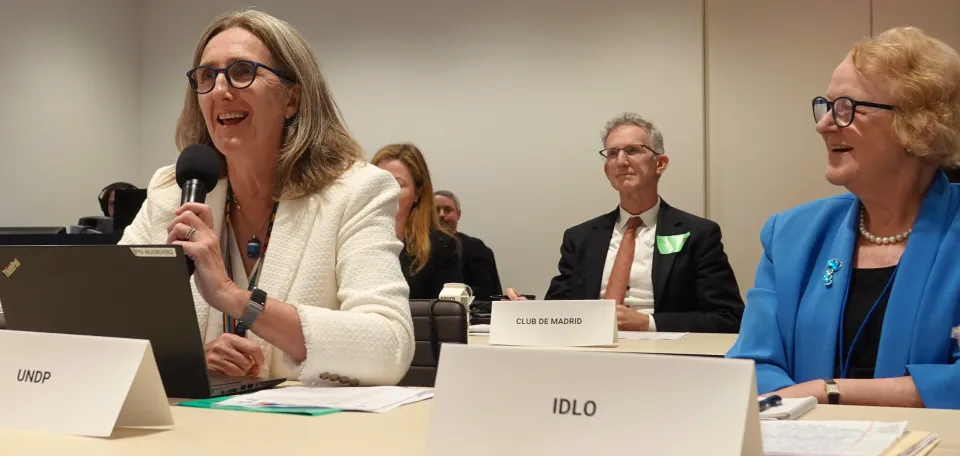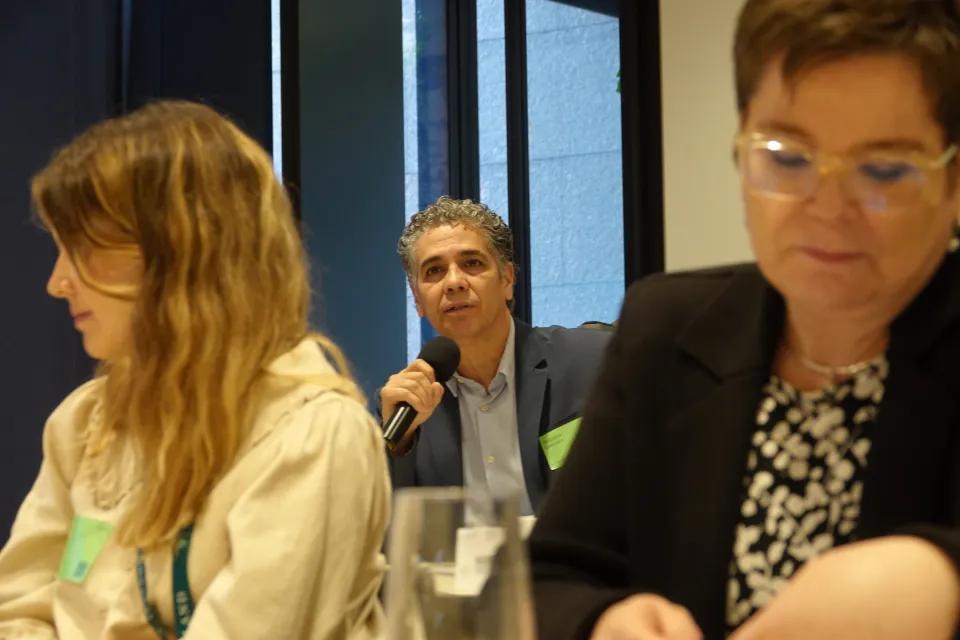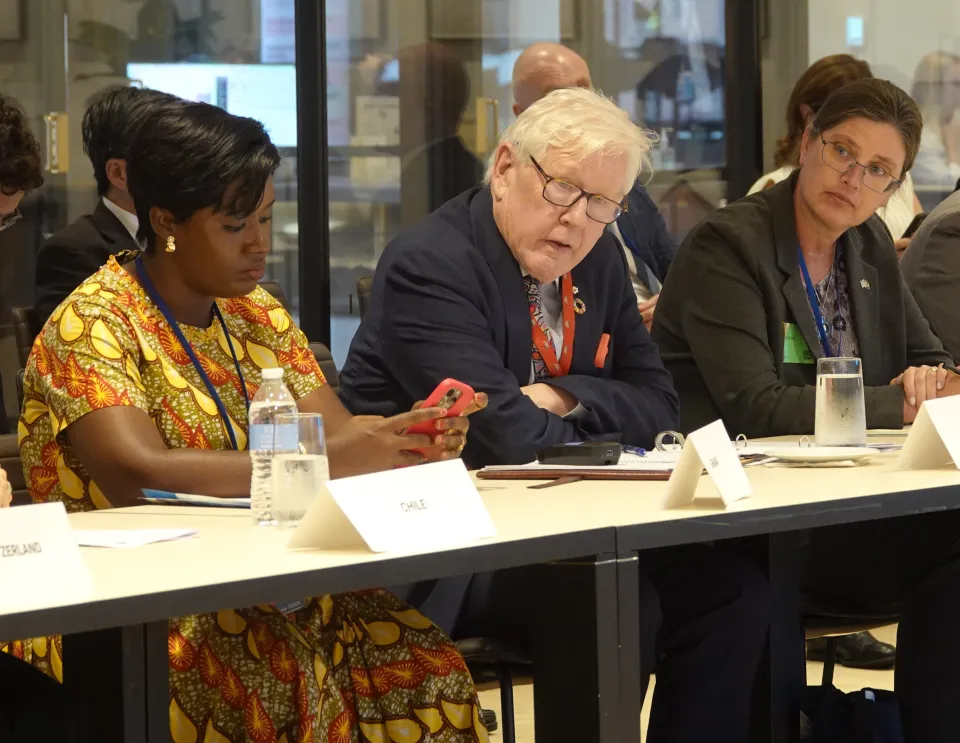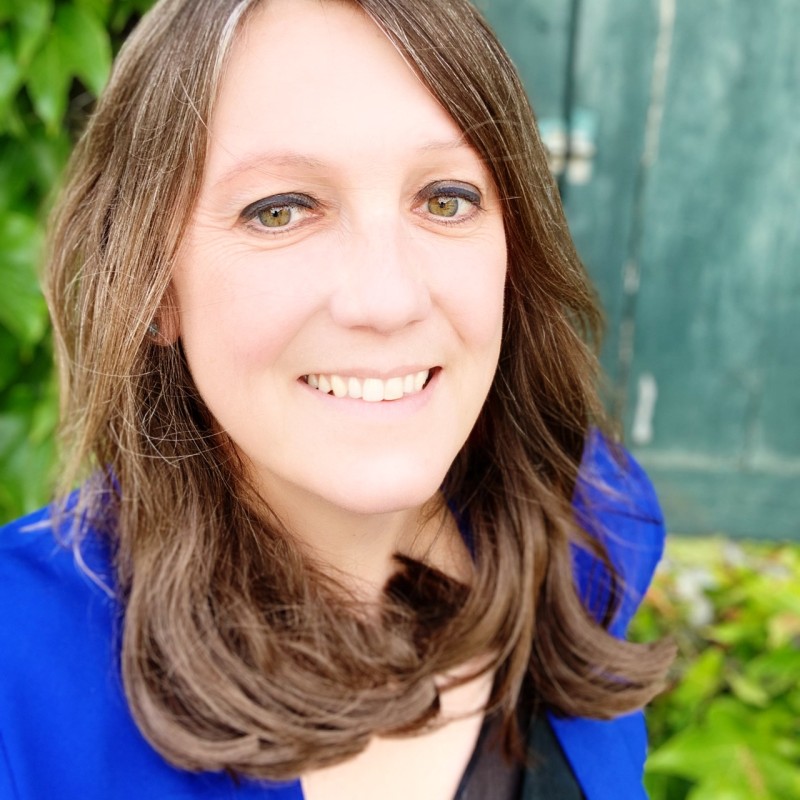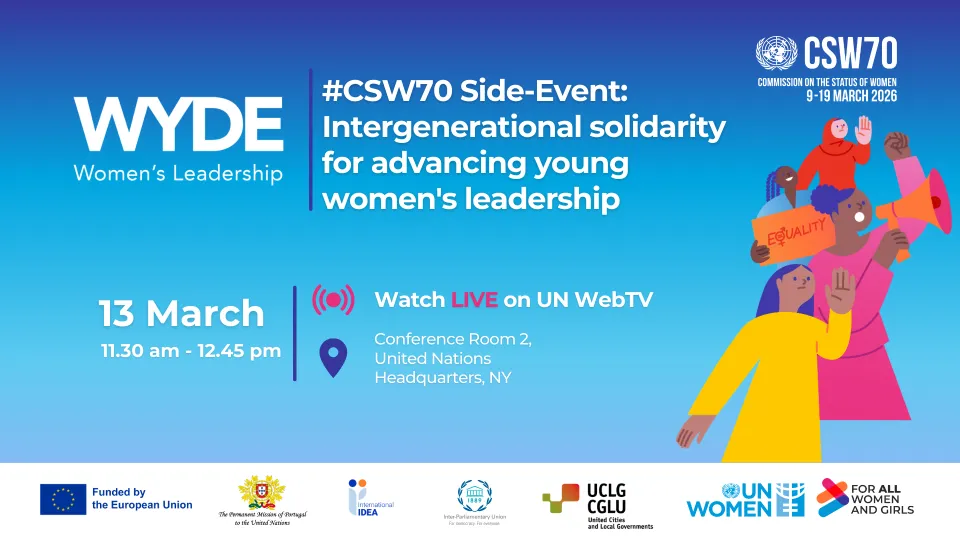Support for Democracy in a New Geopolitical Context: High-Level event on sidelines of UNGA80
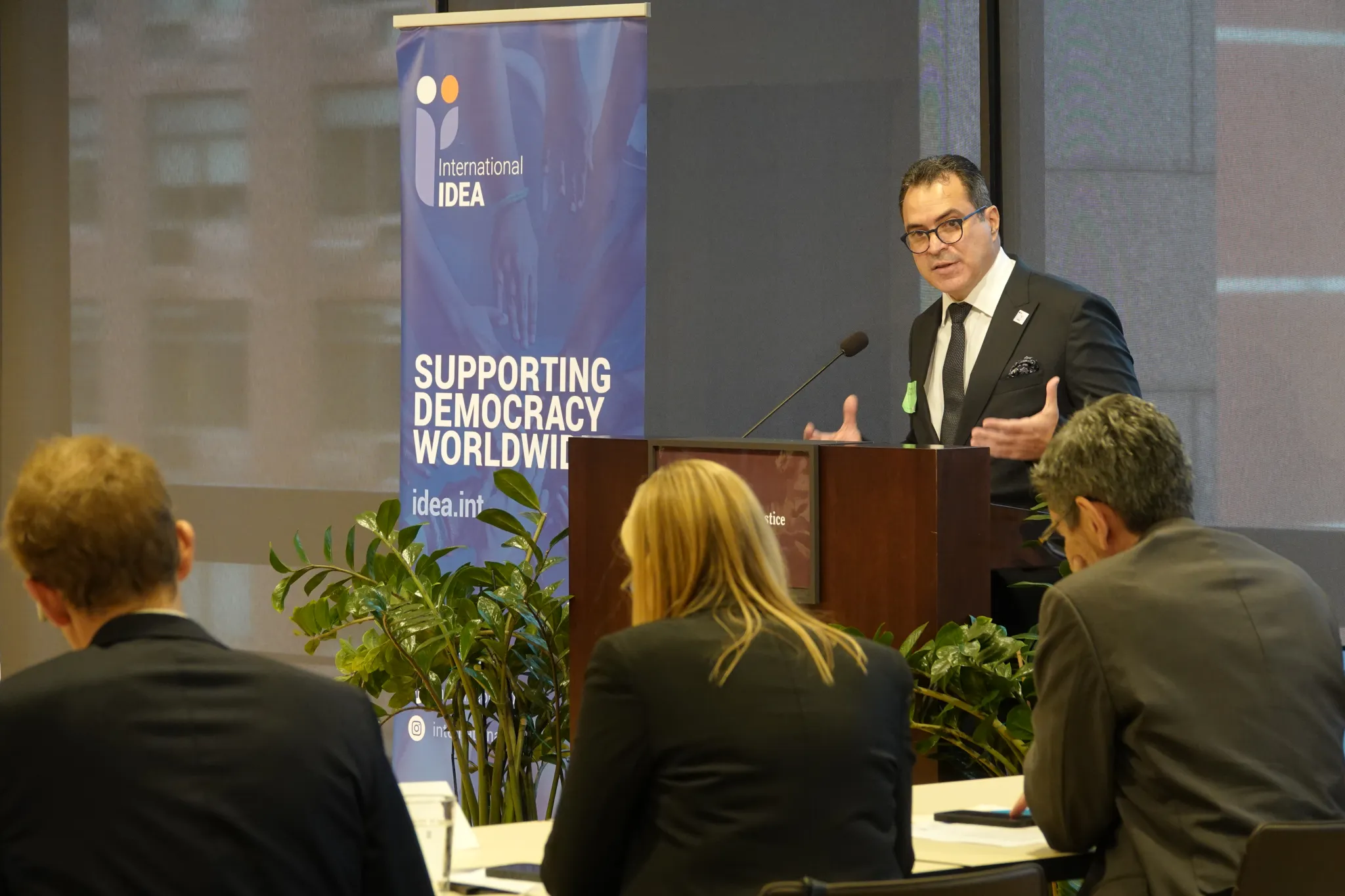
The global democracy landscape is undergoing profound transformation, shaped by rising authoritarianism, contested democratic norms, and shifting geopolitical power dynamics. The alliances that once underpinned international cooperation on democracy and human rights are being tested, contested, weakened and redefined. With so many global challenges converging at once, this moment of crisis also presents not only a unique opportunity — but also a necessity — to forge new partnerships and create space for diverse, inclusive leadership from both the Global South and North, fostering broad cross-partisan ownership of a global democracy agenda towards a renewal of the international democratic architecture.
Recognizing the urgent need to respond to both these challenges and opportunities, International IDEA, together with its member states and partners — including the Governments of Switzerland (Chair of IDEA in 2025), Canada, Chile, Estonia, Ghana, Mongolia, South Africa — joined forces with the International Development Research Centre (IDRC), Canada, and the Trust, Accountability and Inclusion Collaborative, to convene a high-level roundtable on “Support for Democracy in a New Geopolitical Context.”
Hosted at the Ford Foundation Center for Social Justice on the margins of the 80th Session of the UN General Assembly, the event brought together Ministers of Foreign Affairs, Permanent Representatives, leaders from multilateral organizations, philanthropy, academia, and civil society. The discussions were forward-looking and purposeful. Democracies from all regions reflected on their own democratic journeys and experiences, underscoring the value of mutual learning and dialogue. Participants agreed that democracy can never be taken for granted and that protecting it is a renewed commitment and collaboration across all regions and sides of the political spectrum.
Opening the session, Martin Abregu, Vice President of International Programs at the Ford Foundation, underscored the urgency of the moment:
We recognize it’s a time of profound global shifts, not least in the global order that has shaped the post — World War II era. Among many changes is the continued weakening of democracy worldwide, which compels us to reimagine how we support and sustain it — a challenge that creates both urgency and opportunity.
Democracy at a crossroads: Forging inclusive alliances
The backdrop was clear: democracy faces its most significant headwinds in decades, with International IDEA’s Global State of Democracy data showing 2024 marked the ninth consecutive year in which more countries regressed than improved, a trend unseen since records began in 1975. At the same time, the multilateral system is now at its weakest, with growing recognition that multilateral erosion and democratic decline reinforce each other.
With democracies across the world confronting profound tests of resilience and legitimacy, the challenges facing democracy anywhere have become challenges for all, compelling a shared search for answers: new visions grounded in solid research, data and evidence, guided by a shared resolve to stand together, and to forge durable alliances in defense of democratic ideals. In an increasingly horizontal world, democratic innovation and renewal are emerging across all regions, and the mutual exchange of these lessons offers new pathways toward collective democratic progress. This moment calls for new forms of principled and inclusive leadership — capable of advancing a multilateralism rooted in shared democratic values, mutual responsibility, and collective purpose. Opening the discussion, International IDEA Secretary-General Dr Kevin Casas-Zamora called for renewed collaboration to revitalize democracy in a changing world, stressing the path forward lies in inclusive exchanges and the forging of new, horizontal and diverse alliances and partnerships.
Only inclusive exchanges - with countries from all over the world, and with actors anchored both in institutions and in civil society - will generate the ideas, opportunities, and solutions we need to protect and renew democracy,” he said. He underscored that inclusive leadership and innovation from all regions are essential, noting: “The faces here are visible proof that democratic values are not tied to national identities, religious creeds or ethnic traits. These values speak to very profound aspirations in all human beings.
The importance of democratic delivery: Bridging the North-South divide
A key element in the geopolitical rebalancing is importance of states working together as equals in their quest to sustain democracy at the domestic level while being supported at the multilateral level. While countries reaffirmed their shared commitment to democracy, many emphasized that democratic systems must deliver an economy that works for its population and leaders who value democratic principles. Disinformation online and in traditional media are contributing to widening polarization and a decline of public trust in democracy.
A recent International IDEA study highlights complementary perspectives on democracy by UN member states. Together, these perspectives underscore the need for more inclusive, context-sensitive approaches that link political rights with democratic systems’ capacity to protect economic, social and cultural rights for all and not just the few.
This theme was amplified by member states sharing their national perspectives and commitments:
Speaking on behalf of Switzerland as Chair of International IDEA in 2025, Ambassador Patricia Danzi, Director General of the Swiss Agency for Development and Cooperation, highlighted democracy’s fragility even in established systems:
Never take it for granted, fight for it, teach your children about it, include it in the curriculum, and live it every day. Democracy is not a Western model, but a universal model for people everywhere.
Chile’s Foreign Minister Alberto van Klaveren Stork, linked his country’s own history of dictatorship and democratic recovery to its commitment to coalition-building:
Democracy is not limited to electoral procedures. It is an ecosystem that requires the rule of law, separation of powers, the full respect for human rights, inclusion, and accountability. Our conviction is simple: more just, inclusive, and transparent democracies are also safer, more innovative, and create more prosperous societies.
Mongolia’s Foreign Minister, Battsetseg Batmunkh, spoke to her country’s democratic journey since 1990 and its regional leadership role:
Mongolia has sought to strengthen democratic institutions, uphold the rule of law, and foster active citizen participation. Our recent reforms have enhanced judicial independence and increased women’s political participation - now 25 percent of our parliament members are women. We remain committed to sharing our experiences, promoting inclusive governance, and ensuring that democracy delivers benefits for people.
Estonia’s Vice Minister of Foreign Affairs, Minna-Liina Lind, underscored how freedom and democracy remain inseparable from prosperity:
When people are free to make choices, when institutions are transparent and accountable, and when democracy is allowed to flourish, a country can unlock its full potential. Freedom and democracy are not abstract concepts - they are the foundation of prosperity.
South Africa’s Minister Plenipotentiary and Deputy Permanent Representative, Marthinus Christoffel Johannes Van Schalkwyk, emphasized the need for democracy to be rooted in each country’s own context:
We must embrace democracy not as a borrowed system, but as a living, breathing project grounded in our histories, cultures, and struggles” and made a call to action: “Democracy must be lived and experienced in the daily lives of ordinary people - through access to quality education, healthcare, jobs, and safety. It cannot be reduced to periodic elections alone. The real question is: what does democracy bring to people’s lives, and how do we ensure they continue to believe in it?
Civil society and the multilateral arena: The path forward
A common thread among participants — which included critical insights from the United Kingdom’s Foreign, Commonwealth & Development Office and organizations like the Carnegie Endowment for International Peace, the Open Government Partnership, Fundacion Multitudes, the Global Democracy Coalition, and the United Nations Development Programme — was that defending democracy is not the task of any single stakeholder, sector, region or country alone.
Highlighting the need to move past traditional donor-recipient models, Thomas Carothers, Director of the Democracy, Conflict, and Governance Program at the Carnegie Endowment for International Peace, articulated the new reality:
There's a new horizontal world in front of us… We all have problems. We’re all looking for answers.
He concluded that this shift means looking for new openness and for new ways of doing this that are genuinely collaborative.
Canada’s Permanent Representative to the UN, Ambassador Robert Rae, reflected on the need for humility and listening in democracy support:
Listening is more important than talking. We have to create the space where those two ideas can happen. If we engage with humility and listen to each other, we’ll probably have more success.
Norway’s State Secretary Andreas Kravik, emphasized the pressing need to stand up for democratic values broad coalitions in support of democracy:
We need to be very adamant in saying to ourselves and to everyone who wants to listen, that we have to take this into our own hands. There's no knight on a, with a shining armor that will come and save us. We need to really stand up for democracy and democratic values and principles, and we' are looking forward to collaborating with all countries and non-state stakeholders here today, supported by International IDEA.
These contributions, alongside roundtable input from other governmental partners, including from the United Kingdom, the European Union, Costa Rica, Finland, Timor-Leste, Sweden, and Portugal, reinforced that democracy’s resilience lies in its adaptability and responsiveness to people’s needs. Participants called for a renewed commitment to defending civic space, addressing inequality, and countering disinformation, all while ensuring that democracy assistance models chart new paths together that acknowledge the profound global geopolitical shifts under way.
The discussion culminated in a strong consensus: protecting democracy requires new narratives and a renewed global democratic architecture grounded in inclusive partnerships, broadened, diverse leadership, horizontal peer learning, and collaboration across governments on all sides of the political spectrum, civil society, and multilateral institutions.
Crucially, the path forward requires leveraging the multilateral system, particularly the UN and other intergovernmental bodies, as platforms for a renewed, inclusive global democracy agenda.
The discussion closed on an inspiring note, as Julie Delahanty, President of the International Development Research Centre, Canada, affirmed the strong, collective resolve to defending and reinvigorating democracy:
We must leave here today not only with ideas, but with renewed resolve - resolve to do more, to do better, and to do it together.
Building on the momentum of this dialogue, the convergence of the UN’s 80th anniversary and International IDEA’s 30th anniversary in 2025 offers a vital opportunity to reflect, reassess, and chart a renewed global agenda for democracy in a transformed geopolitical era - one grounded in collaboration, humility, and shared commitment.
